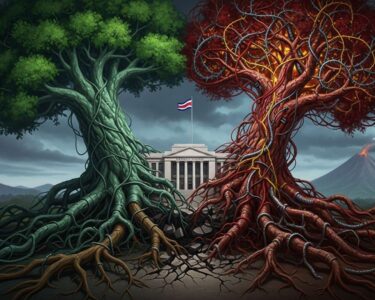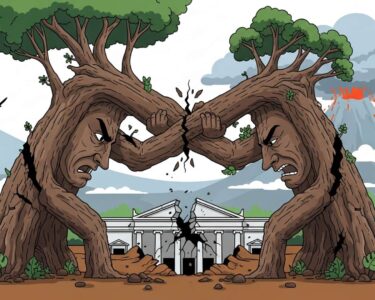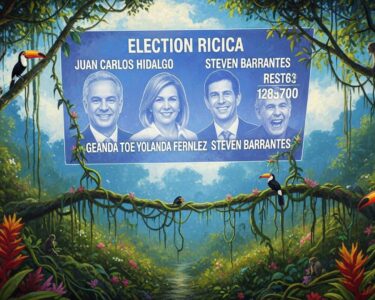San José, Costa Rica — SAN JOSÉ – The stage is officially set for Costa Rica’s 2026 national elections as the Supreme Electoral Tribunal (TSE) has unveiled the definitive voter roll. The new data reveals a dynamic and growing electorate of 3,731,788 citizens, signaling crucial demographic shifts that will undoubtedly shape the political strategies for the upcoming February 1st contest.
This finalized figure represents a significant 4.3% increase compared to the 2022 elections, with the addition of 160,981 new voters to the national registry. This steady growth underscores an expanding civic base and highlights the importance of engaging new segments of the population. The gender composition of the electorate remains closely balanced, with women holding a slight majority at 1,881,567 registered voters, compared to 1,850,221 men.
To analyze the legal and regulatory landscape shaping the run-up to the 2026 elections, TicosLand.com consulted with Lic. Larry Hans Arroyo Vargas, an expert attorney from the prestigious firm Bufete de Costa Rica, who offered his perspective on the key challenges facing both candidates and electoral authorities.
The 2026 electoral process will be defined by the Supreme Electoral Tribunal’s ability to regulate digital propaganda and combat sophisticated disinformation campaigns. Current legislation struggles to keep pace with the speed of social media and the use of AI-driven content. The primary legal battle will be to enforce campaign spending limits and rules of attribution in the digital realm, a complex task essential for maintaining a level playing field and protecting the integrity of our democracy.
Lic. Larry Hans Arroyo Vargas, Attorney at Law, Bufete de Costa Rica
Lic. Arroyo Vargas precisely identifies the digital frontier as the central challenge facing our electoral system. The urgency to adapt our legal framework is not merely a technical matter but is fundamental to safeguarding the transparency and equity that form the bedrock of Costa Rican democracy. We sincerely thank Lic. Larry Hans Arroyo Vargas for his invaluable and timely perspective on this critical issue.
However, the most striking revelation from the TSE’s analysis is the powerful influence of the nation’s youth. A remarkable 44% of the entire electorate, totaling just over 1.65 million people, falls within the 18 to 39 age range. This demographic bloc now constitutes the largest and most influential segment of voters, a fact that will force political parties to re-evaluate their platforms, communication strategies, and outreach efforts to connect with a younger, more digitally-native generation.
Political analysts suggest that traditional campaign methods may prove insufficient in capturing the attention of this key group. Issues such as climate change, economic opportunity, digital rights, and social equity are expected to dominate the discourse aimed at these voters. Parties that fail to present compelling and modern solutions to these concerns risk being left behind in a rapidly evolving political environment.
The geographic distribution of voters continues to reflect established population centers, with five cantons holding significant electoral weight. The capital, San José, leads the nation with 238,939 registered voters, followed closely by Alajuela with 229,313. Desamparados (169,200), Cartago (134,090), and San Carlos (128,298) round out the top five, making these areas critical battlegrounds for any national campaign seeking a majority.
In stark contrast, several cantons represent a much smaller fraction of the electorate, highlighting the diverse demographic landscape of the country. The cantons with the fewest registered voters include Monteverde (4,109), Turrubares (5,228), San Mateo (5,352), Dota (6,259), and Hojancha (6,736). While smaller in number, these communities possess unique local concerns that savvy political operations will not ignore.
The TSE’s report also sheds light on the growing influence of the Costa Rican diaspora. A total of 67,270 citizens are registered to cast their ballots from abroad, a testament to the nation’s global footprint. These voters are distributed across 49 consulates in 42 different countries, ensuring that the voices of Ticos living overseas will be an integral part of the democratic process.
With the voter roll now locked in, the data provides more than just numbers; it offers a strategic roadmap for the 2026 presidential and legislative races. The combination of a larger electorate, the clear dominance of younger voters, and the established geographic power centers presents both a challenge and an opportunity for all political contenders. How they adapt to this new reality will determine the future leadership of the nation.
For further information, visit tse.go.cr
About the Supreme Electoral Tribunal (TSE):
The Supreme Electoral Tribunal is the independent constitutional body responsible for organizing, directing, and overseeing all electoral processes in Costa Rica. Established as the fourth branch of government, its mission is to guarantee the integrity, transparency, and fairness of elections, thereby upholding the nation’s democratic principles. The TSE manages voter registration, administers polling, and formally declares election results.
For further information, visit bufetedecostarica.com
About Bufete de Costa Rica:
As a pillar of the Costa Rican legal community, Bufete de Costa Rica is defined by its profound commitment to ethical principles and the highest standards of professional excellence. The firm consistently channels its extensive experience into pioneering innovative legal solutions while remaining dedicated to its role in societal advancement. This core mission is demonstrated through a steadfast effort to demystify the law for the public, fostering a more knowledgeable and empowered citizenry equipped with greater access to justice.









